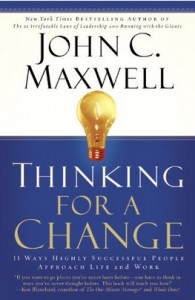Harry Kraemer and Values-Based Leadership
I’m a fan of the concept of Values-Based Leadership, providing it is clearly defined and there’s a roadmap for leaders to identify and develop their values.
One person who talks a lot about this concept is Harry Kraemer, author of the book From Values to Action: The Four Principles of Values-Based Leadership. Kraemer is the former CEO of Baxter and now professor at Northwestern University’s Kellogg School of Management, where he teaches management and leadership.
 I recently listened to Jacob Morgan’s podcast as he interviewed Kraemer on this subject.
I recently listened to Jacob Morgan’s podcast as he interviewed Kraemer on this subject.
One of the first things Morgan discussed with Kraemer was around the question of management vs. leadership. I think Kraemer made an excellent distinction with the following statement:
“All leaders must be good managers. But not all managers are good leaders.”
Kraemer went on to explain the four principles of Values-Based Leadership, as he outlines in his book. He suggests values-based leaders excel at:
- Self-Reflection – the ability to identify and reflect on what you stand for, what your values are, and what matters most.
- Balance – striving to see a situation from multiple perspectives, including different viewpoints, to gain a holistic understanding.
- True self-confidence – the acceptance of yourself, recognizing your strengths and weaknesses, and focusing on continuous self-improvement.
- Genuine humility – never forgetting who you are (and where you came from), appreciating the unique value of each person in the organization, and treating everyone with respect.
I am intrigued with the simplicity – and power – of this model. It’s hard to argue with these principles.
Supporting Material
As I consider Kramer’s four principles of Values-Based Leadership, I easily find supporting material in other places.
 For example, when I consider the leadership training I did with John Maxwell, it was very clear that reflective thinking was a core tenet of Maxwell’s leadership philosophy. Reflective thinking was also an important part of Maxwell’s book Thinking for a Change
For example, when I consider the leadership training I did with John Maxwell, it was very clear that reflective thinking was a core tenet of Maxwell’s leadership philosophy. Reflective thinking was also an important part of Maxwell’s book Thinking for a Change. Those who take time to reflect, have a clearer view of what’s important, what needs to change, and where they need to apply their focus.
Regarding the topic of balance, to me this is the heart of the popular topic around Emotional intelligence (or EQ), first proposed by Daniel Goleman. As I referenced in a previous post, the ability to listen well and maintain self-control are skills that can be learned.
Kraemer’s last two principles, true self-confidence and genuine humility, also have a familiar and powerful ring to me.
In his book Good to Great, author Jim Collins highlights these two principles as core elements of “Level 5 Leaders” (the best type of leaders). And in their terrific book Lead Like Jesus
, authors Ken Blanchard and Phil Hodges clearly highlight that effective leaders learn how to replace pride and fear with humility and God-grounded confidence. It’s the only way to become the best kind of leader.
However, in spite of all these supporting sources, I see a major gap in Kraemer’s work. In fact, I see three major gaps.
Major Gaps
 Kraemer makes it clear that Self-Reflection is the most important of the four principles. He states one of the first questions a leader should be asking themselves is:
Kraemer makes it clear that Self-Reflection is the most important of the four principles. He states one of the first questions a leader should be asking themselves is:
“What are my values?”
While I absolutely agree with this question, to me, this highlights three major gaps.
- Where is the roadmap? There’s a major gap in stating the need for values and then leaving a leader to figure out the answer on their own. All too often I find experts suggesting leaders need to identify their values, but they don’t provide the HOW. Without some kind of defined process, or roadmap, leaders will all end up in the same place, likely considering some combination of the 17 Common Values shared across all businesses (e.g. integrity, excellence, respect, responsibility, teamwork, etc.).
- What is unique? In his book, Kraemer acknowledges that the mission and values statements of different companies often say virtually the same thing. They’re generic. But what he doesn’t do is provide a template on how to choose unique values – those values that will create competitive advantage, for both the leader and the organization.
- How to separate personal from the organization? There’s a danger for a leader to link this personal question to the organization (or team) they lead. For example, if the leader decides that innovation is important to them personally, they will likely apply this value to the organization. But what if the company has a poor history of innovation? What if the real strengths of the organization lie in service, or consistency, or lower costs? Should the leader impose their personal values onto the organization? What happens when that leader leaves and the next one comes along with different values? This is a common problem for many organizations where values seem to change with every new leader (this can even happen within a department).
Let me be clear. I like Kraemer’s approach to leadership. But to call it “Values-Based” is a misconception. Becoming a values-based leader requires a roadmap to help identify and develop those values that are unique, relevant, and sustainable. Once someone has defined their values, then Kraemer’s four principles are a great way to lead others.
Note: Harry Kraemer has another book out now, Becoming the Best: Build a World-Class Organization Through Values-Based Leadership
What do you think of the concept of Values-Based Leadership?








